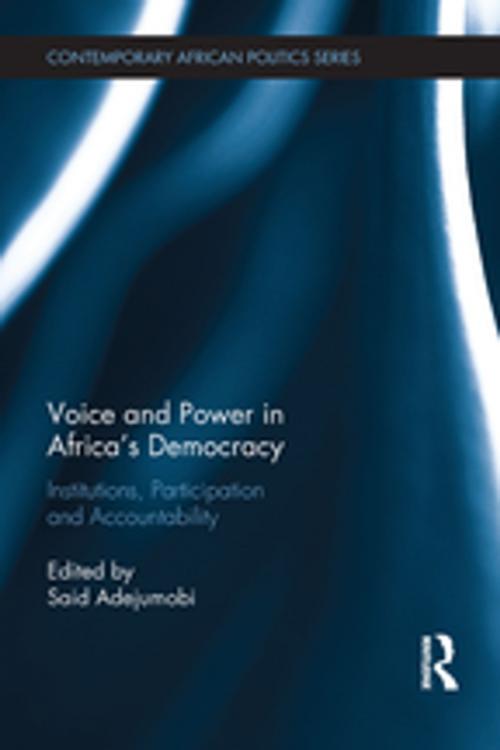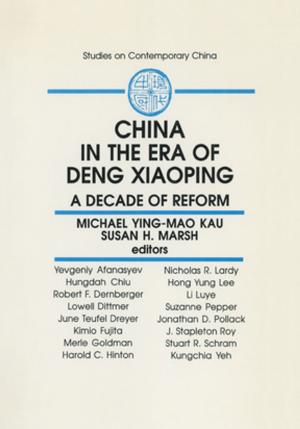Voice and Power in Africa's Democracy
Institutions, Participation and Accountability
Nonfiction, Social & Cultural Studies, Political Science, International, Foreign Legal Systems, Government, Democracy| Author: | ISBN: | 9781317184058 | |
| Publisher: | Taylor and Francis | Publication: | August 16, 2017 |
| Imprint: | Routledge | Language: | English |
| Author: | |
| ISBN: | 9781317184058 |
| Publisher: | Taylor and Francis |
| Publication: | August 16, 2017 |
| Imprint: | Routledge |
| Language: | English |
Africa has made notable progress in its nascent democracy but with uneven performance across countries. However, across the board, challenges abound. Central to Africa’s checkered democratic narrative is the weakness of its democratic institutions, participatory mechanisms and accountability platforms. This book interrogates these elements with the role and capacity of the parliament, political parties, media, freedom of information law, trade union movements, gender empowerment mechanisms and accountability methods and processes all under examination. The weakness of democratic institutions has had a corrosive effect on political accountability and limits the scope for popular participation in governance. In many countries, innovative practices, and new social and political encounters are emerging that challenge old institutional cultures, promote reforms and demand accountability from the governing elite. The book captures these varied, innovative patterns of democratic change. With first hand knowledge and expertise of the continent, the contributors analyze the issues, trends, problems and challenges in these critical areas of Africa’s democratic growth. The conclusion is that strengthening democratic institutions, opening up the political space for enhanced political participation and ensuring political accountability will determine the course, prospects and quality of Africa’s budding democracy.
Africa has made notable progress in its nascent democracy but with uneven performance across countries. However, across the board, challenges abound. Central to Africa’s checkered democratic narrative is the weakness of its democratic institutions, participatory mechanisms and accountability platforms. This book interrogates these elements with the role and capacity of the parliament, political parties, media, freedom of information law, trade union movements, gender empowerment mechanisms and accountability methods and processes all under examination. The weakness of democratic institutions has had a corrosive effect on political accountability and limits the scope for popular participation in governance. In many countries, innovative practices, and new social and political encounters are emerging that challenge old institutional cultures, promote reforms and demand accountability from the governing elite. The book captures these varied, innovative patterns of democratic change. With first hand knowledge and expertise of the continent, the contributors analyze the issues, trends, problems and challenges in these critical areas of Africa’s democratic growth. The conclusion is that strengthening democratic institutions, opening up the political space for enhanced political participation and ensuring political accountability will determine the course, prospects and quality of Africa’s budding democracy.















